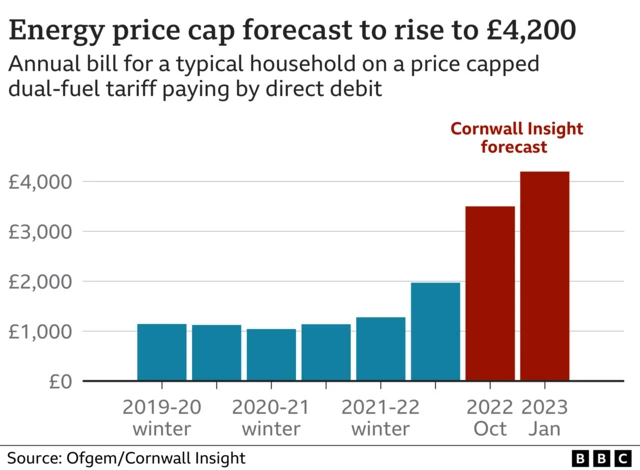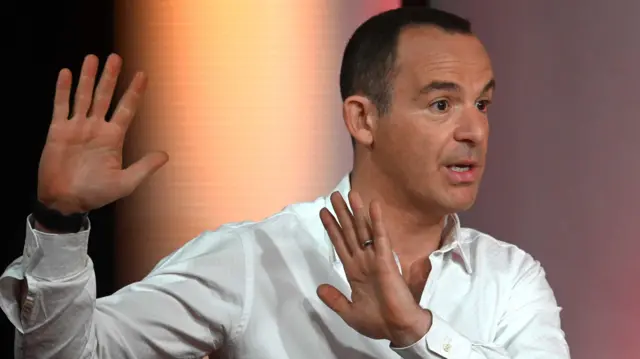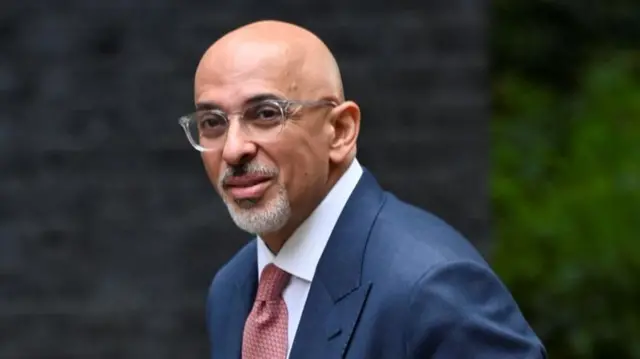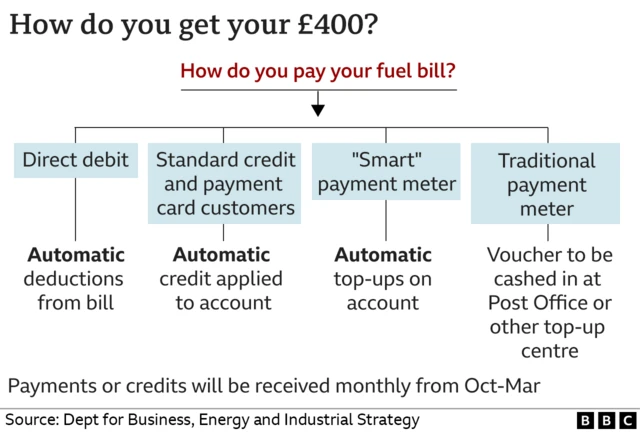What is the energy price cap?published at 11:09 BST 10 August 2022
The energy price cap has been talked about a lot recently, as another rise is expected to be announced in a few weeks. But what actually is it?
The energy price cap is the maximum amount that suppliers can charge customers in England, Scotland and Wales for each unit of energy. It doesn't apply in Northern Ireland.
It's designed to protect consumers from short-term price changes.
Every three months, the cap is adjusted by Ofgem - the government's regulator for electricity and gas. The adjustments are based on the price energy suppliers pay producers for the energy and gas that they then sell to consumers.
Energy prices have risen sharply as demand for gas increased when Covid restrictions eased, and because the war in Ukraine has threatened supplies from Russia. Experts have predicted the cap will continue to rise, potentially reaching up to £4,200 a year for a typical household.
You can read more about the energy price cap, and how this will impact bills across the UK, in our explainer here.
 Image source, .
Image source, .



